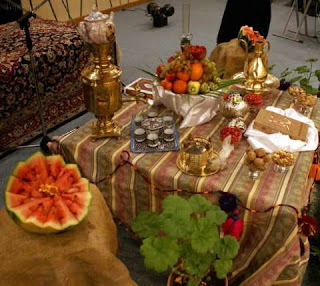Imagine
these three women: A young mother who is an aspiring author, a young
mother who is homeless and a Persian lady who is a recent immigrant to
California.
The author is visibly troubled by the sight of the young mother sitting on a
bench in the promenade next to her baby carriage for over two hours. She
approaches the mother on the bench with an offer to help. The young
mother has no job and no place to go. So the author arranges for her to
stay one night in a motel. This small
episode brings the author to write her next novel on shelters. There are
plenty of homeless shelters in Los
Angeles.
A Santa Monica shelter for homeless women-Ocean Park Community Center:
I attended the Author Talk at my local library and that is where I met the Persian lady.
(I prefer the term Persian and not Iranian which was invented by the British in the past Century.) The Persian lady seems just as gentle and caring as the young author. She heard us talk about different shelters across the city and she was incredulous: “Why do people have to be homeless? How come they have nowhere to go? Whatever happened to the parents, there must have been grandparents, aunts or uncles? What kind of society is it when parents tell their kids: You are eighteen and you are out?”
Laura Nicole Diamond:
Shelter Us book cover:
A Santa Monica shelter for homeless women-Ocean Park Community Center:
I attended the Author Talk at my local library and that is where I met the Persian lady.
(I prefer the term Persian and not Iranian which was invented by the British in the past Century.) The Persian lady seems just as gentle and caring as the young author. She heard us talk about different shelters across the city and she was incredulous: “Why do people have to be homeless? How come they have nowhere to go? Whatever happened to the parents, there must have been grandparents, aunts or uncles? What kind of society is it when parents tell their kids: You are eighteen and you are out?”
My
extended family all came from Mashhad in the North Est part of Persia. I understood what the Persian lady was
talking about. No one is left
homeless. The mentally ill, the
physically challenged all find a home with the extended family. They are rarely put away in any sort of
institution. The bright and able take
care of the weak and feeble. But the
other side of this scenario is that sometimes young people feel trapped. They have to follow the family structure and
“orders”. Some dominant mothers will
insist on picking spouses for their children, and after the wedding there are
the orders: You need to have a kid. And
it is time for another one. Freedom and
imagination can hardly flourish. So here
in the area family structure and tradition there is a fine balance.
A typical table in a Persian home: Always hot water and tea in a samovar, a bowl of fruits, nuts and cakes. Welcoming everyone with warm hospitality:
A typical table in a Persian home: Always hot water and tea in a samovar, a bowl of fruits, nuts and cakes. Welcoming everyone with warm hospitality:
The
idea of extended family is very well established in other societies. I have read this from one of my favorite
authors, Isabel Allende who was a refugee from Chile:
http://www.theguardian.com/lifeandstyle/2013/sep/13/isabel-allende-my-family-values
“I have been a foreigner all my life,
first as a daughter of diplomats, then as a political refugee and now
as an immigrant in the US. I have had to leave everything behind and start
anew several times, and I have lost most of my extended family. Here in
California, I have tried to recreate a sense of extended family with a few
chosen loyal friends. I call them "my tribe". It works better than a
real family because we are together by choice not obligation. My grandchildren
have grown up in this little tribe and I don't think they are aware that
we are not even blood-related.”
I
feel strongly that churches, synagogues, mosques and monasteries by and large
served their communities by taking in widows and orphans. The universal sermon is to be kind to the
poor and needy.
If we want to live in a society with all these freedoms
to pursue happiness and get education and marry our heart’s desire, then I
believe we should all work on a policy to prevent homelessness.




think most (but not all) homelessness in the US is due to mental illness where they don't want help from their family. But for those rare cases where this is not true I agree with you that no one should be left homeless.
ReplyDelete